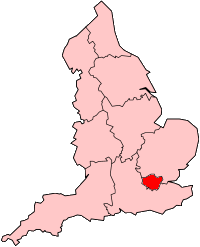West Croydon to Wimbledon Line
| West Croydon | ||||||||||||||||||||||||||||||||||||||||||||||||||||||||||||||||||||||||||||||||||||||||||||||||||||||||||||||||||||||||||||||||||||||||||||||||||||||||||||||||||||||||||||||
|---|---|---|---|---|---|---|---|---|---|---|---|---|---|---|---|---|---|---|---|---|---|---|---|---|---|---|---|---|---|---|---|---|---|---|---|---|---|---|---|---|---|---|---|---|---|---|---|---|---|---|---|---|---|---|---|---|---|---|---|---|---|---|---|---|---|---|---|---|---|---|---|---|---|---|---|---|---|---|---|---|---|---|---|---|---|---|---|---|---|---|---|---|---|---|---|---|---|---|---|---|---|---|---|---|---|---|---|---|---|---|---|---|---|---|---|---|---|---|---|---|---|---|---|---|---|---|---|---|---|---|---|---|---|---|---|---|---|---|---|---|---|---|---|---|---|---|---|---|---|---|---|---|---|---|---|---|---|---|---|---|---|---|---|---|---|---|---|---|---|---|---|---|---|---|
| ||||||||||||||||||||||||||||||||||||||||||||||||||||||||||||||||||||||||||||||||||||||||||||||||||||||||||||||||||||||||||||||||||||||||||||||||||||||||||||||||||||||||||||||


The West Croydon to Wimbledon Line was a railway line in south London. It was built by the Wimbledon and Croydon Railway (W&CR) over part of the trackbed of the Surrey Iron Railway. It opened on 22 October 1855 connecting the South West Main Line of the London and South Western Railway (LSWR) to the London Brighton and South Coast Railway (LB&SCR). National Rail services ceased and the line eventually shut down in 1997 for it to be changed over into a new route for the Tramlink network which eventually rolled into passenger service in May 2000.
Operation
Initially it was operated under contract by its engineer George Parker Bidder but in 1856 it was leased to the LB&SCR, which purchased it outright in 1858. After construction of the branch from Merton Park to Tooting in 1868 the section from Wimbledon to Merton Park became joint LSWR/LB&SCR. On 1 January 1923 under the 1921 grouping it became part of the Southern Railway.
Electrification
The line was electrified using the third rail direct current system from 6 July 1930.
Closure and re-use
The last train ran on 31 May 1997 and the line closed on 2 June 1997 for most of it to be re-used in the Tramlink network.
